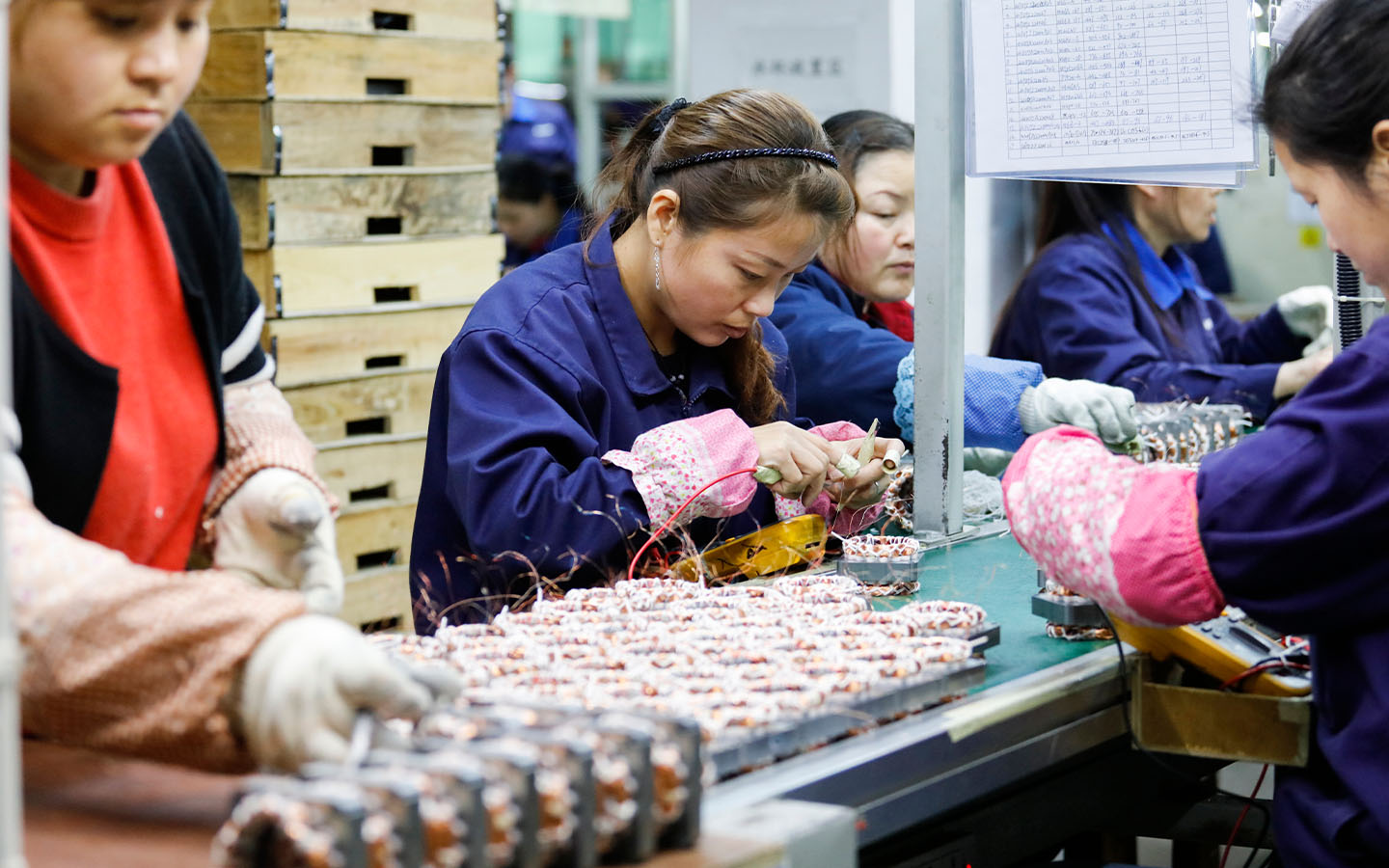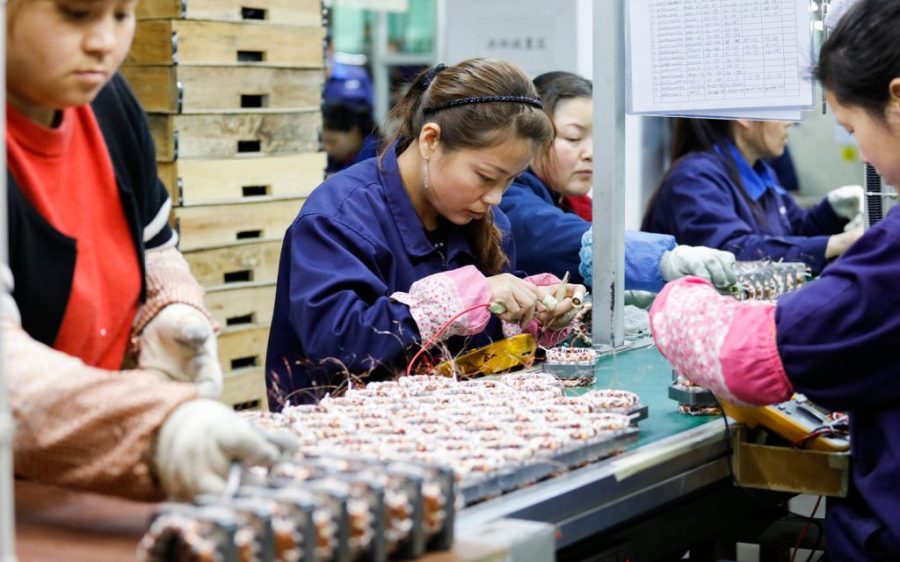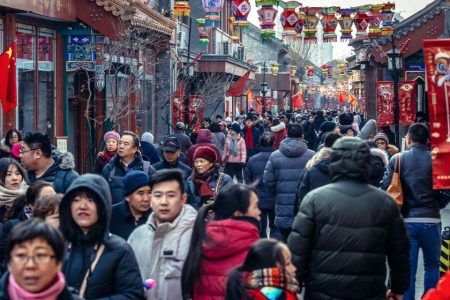China’s purchasing managers’ index (PMI) for its manufacturing sector contracted in April, falling to 49 as US President Donald Trump’s hefty new tariffs on Chinese imports took effect. The Dutch multinational banking group ING described the result as “lower than expected.”
The 1.5 percentage point month-on-month drop represented a 16-month low for the index. ING had forecast a PMI of 49.7, though other predictions ranged between 47.5 and 50.5.
The bank said that it “came as no surprise” that new export orders saw one of the steepest declines (from 49 in March to 44.7). “This illustrates that tariff impacts are starting to register,” it noted, referring to new duties of up to 145 percent Trump had imposed on most China-made goods entering the US.
The eye-watering rate had put many US retailers and their Chinese suppliers in a state of limbo, and halted some orders.
[See more: Beijing announces measures to protect workers in the face of Washington’s trade war]
April’s employment index also contracted slightly, coming in at 47.9. “The key pain point for China in the current test of endurance between China and the US is the health of the job market,” ING noted. Beijing policymakers have promised to help employers and workers weather the tariff era.
China’s non-manufacturing PMI fared better, easing from 50.8 in March to 50.4 and avoiding contraction for its 28th month running. While new exports in this category plummeted from 49.8 to 42.2, month-on-month, the impact was softened by the service sector, which mainly caters to the domestic market.
ING described China as “holding up well in early stages of the tariff test of endurance”. It also said that US importers were in “wait-and-see mode” – hoping trade talks would eventuate – and may be able to maintain this for some time, provided they front-loaded orders earlier in the year.
“However, once inventories are depleted, assuming there’s no easy substitution product available, companies will face a choice between paying tariffs or discontinuing sales.”






